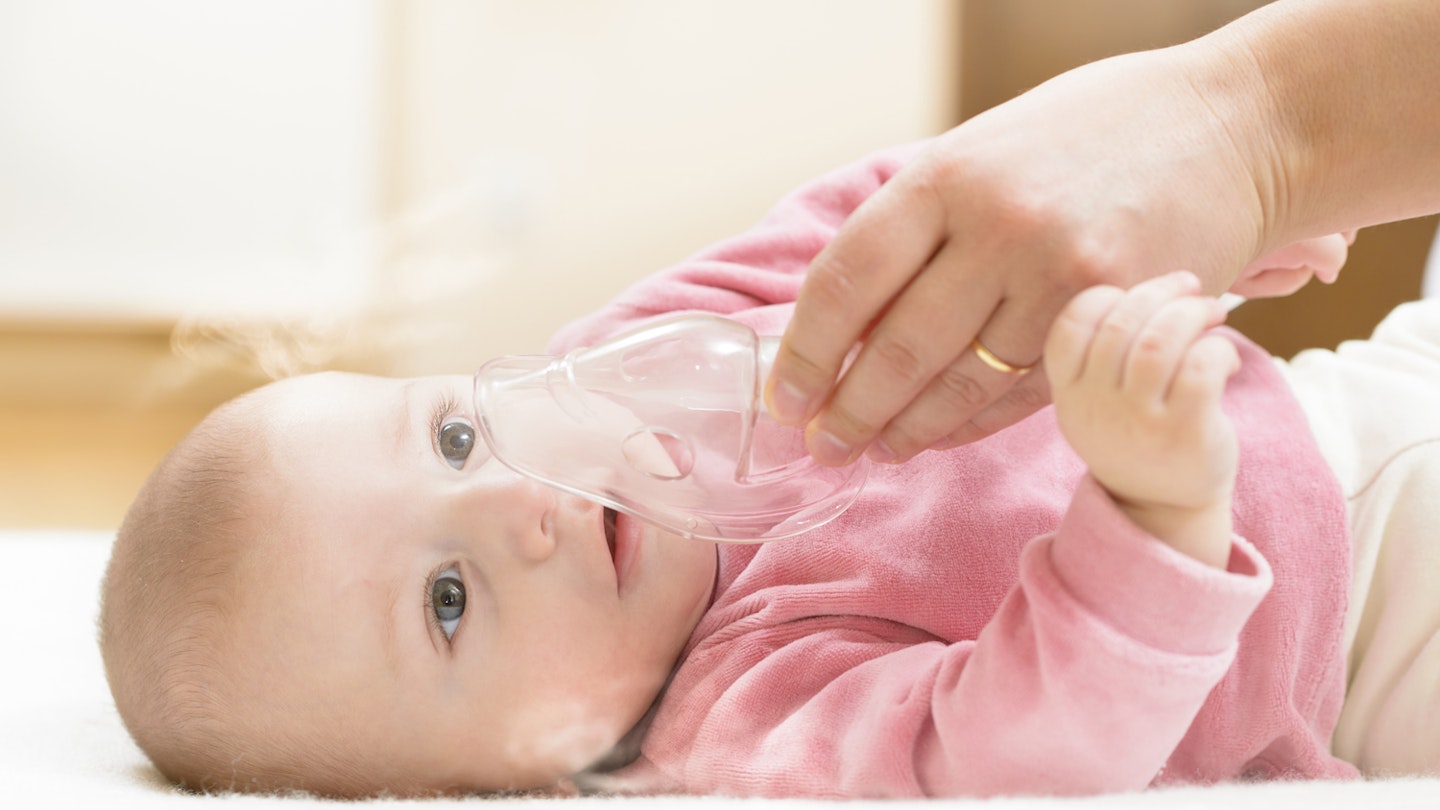Around 5.4 million people in the UK are being treated for asthma. If your baby has asthma, here's everything you need to know.
What is asthma?
Asthma is caused by inflammation of the small tubes (bronchi) that carry air in and out of the lungs. People with asthma have inflamed and sensitive bronchi easily irritated by triggers such as viral infections, exercise, pollen, house dust mites, animal fur and cigarette smoke. When a sufferer comes into contact with their trigger their airway narrows further, muscles around it tightens and they produce sticky phlegm all making it hard to breath. Some children grow out of asthma, others learn to manage their condition and lead a normal life.
What are the symptoms?
A whistling sound when baby breathes, cough and shortness of breath. Occasionally symptoms get gradually or suddenly worse. This is known as an ‘asthma attack’. Asthma is notoriously difficult to diagnose in children under two because nearly a third wheeze at some point anyway because their airways are immature. It stops as they grow. Your child is more likely to be diagnosed if symptoms keep occurring even if they don’t have a cold; are worse at night or first thing in the morning; occur when they’re around known asthma triggers or there’s a family history. A GP will want to know if they were born prematurely or if they had breathing problems as a tiny baby to help them build a bigger picture.
What can you do?
A ‘reliever’ drug that relaxes muscles allowing the airway to open wider is likely to be prescribed. This is given via the traditional blue asthma inhaler or ‘puffer’ you may be familiar with but, for young children, the inhaler is attached to a device called a spacer making it easier to use. The spacer has a mouthpiece (or a face-mask if they’re very young) at one end and that delivers the medicine to their lungs. Sometimes a machine called a nebuliser is used to deliver a fine mist of the medicine. You’ll need to keep a diary of how your child responds because if the wheezing becomes more regular or you need to use the reliever more often they may also need ‘preventer’ medication, administered the same way via a brown inhaler, too. You should refrain from smoking around your child, keep their room well-ventilated, use anti-allergy bedding, wash bedding and toys at 60 degrees and vacuum and dust regularly.
When to see your GP
You will need to stay in regular contact with your baby’s GP or asthma nurse who will want to monitor their condition.
If your child suddenly has trouble breathing, their wheezing and coughing becomes severe and constant, their heartbeat is rapid, they’re drowsy, exhausted or dizzy or their lips or fingers are turning blue do not hesitate to dial 999 because they may be having a severe asthma attack.
